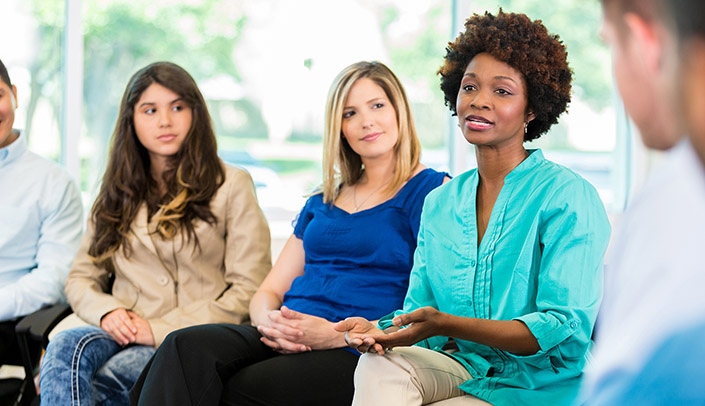As we pass the one-year anniversary of the beginning of the pandemic, have you heard friends and colleagues exclaim, “I feel so hopeful and happy that we can get back to normal now!”? If you do not share their enthusiasm, rest assured, you are not abnormal or wrong.
“Individuals take different amounts of time to adjust to the “new normal,” when major events affect their lives,” said Robin Lally, PhD, UNMC College of Nursing, who studies ways to help people with cancer adjust to their new normal.
The world has and will continue to be affected by the experience of living through the COVID-19 pandemic. Surveys of the Nebraska Medicine workforce (both frontline and non-frontline workers) showed that within six months of the beginning of the pandemic measures of anxiety, depressive-symptoms and emotional stress increased significantly to levels seen worldwide. Moderate to severe levels of these symptoms affected nearly 50% of our colleagues responding.
“One message we are getting out as often as we can is that getting needed help for anxiety, depression, and other very common issues is not only life-saving but potentially career-saving as well,” said Steve Wengel, MD, assistant vice chancellor for campus wellness for UNMC and the University of Nebraska at Omaha.
The campus Wellness Team has continued to support wellness initiatives begun before the pandemic while implementing new initiatives including:
- Peers in Need of Support (PINS)
- Reminders and guidance on how to “Take Care” of mental, physical and spiritual health
- Pandemic Partners
- Resilience and stress management conversations and workshops
- Brief instruction during forums and in the Now and UNMC Today on breathing and self-appreciation
- Science Cafe on anxiety during the pandemic
- Numerous avenues for self-expression through the humanities, such as expressive writing, music and the visual arts
“Even with all of the resources available, we know that some are still suffering in silence and have not reached out for help. For those of you out there, please know that you are not alone and that it is o.k. to get help. It may be one of the best decisions you ever make,” said Sarah Richards, MD, medical director for Care Experience at Nebraska Medicine.
Please let the wellness team know in this anonymous survey if you have accessed mental health resources; what barriers, if any, prevent you from accessing these resources at Nebraska Medicine or UNMC; and how long you would like these increased efforts to continue. Your responses cannot be tracked back to you. If you wish to access mental health resources, please visit: the Wellness page or Employee Assistance Program or Arbor Family Counseling, (402-330-0960).
Anxiety associated with a traumatic life event (like a pandemic) and adjusting to changes in life and the workplace is normal. So, what can you do? One strategy is identifying what is meaningful to you in your history or what you can do now to create meaning in your life. Two questions to ask yourself are:
- What experiences in my life have been particularly meaningful (e.g. birth of child, overcoming a hardship, etc.) and why did that make me feel alive?
- What can I do now (maybe something that you can only do now because of the changes the pandemic has brought) that are creative, courageous or otherwise meaningful? (e.g. start a new tradition, take time to enjoy nature, etc.) It does not have to be huge, just meaningful to you.
These questions can be used in a variety of situations.
“We cannot control everything in our lives and sometimes challenges and even great sadness is unavoidable,” Dr. Lally said, “but research shows us that when we engage in thoughts and behaviors that foster personal meaning in life, this helps to reduce distress and improve well-being.”
